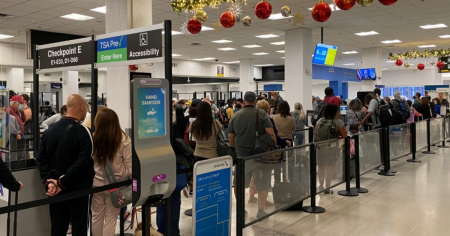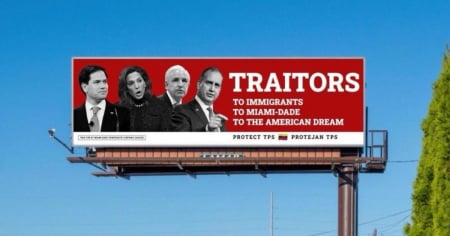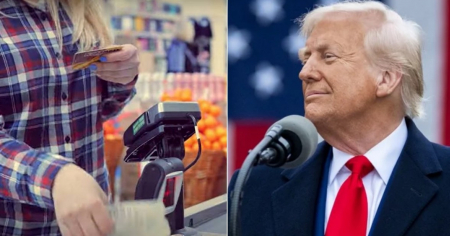Donald Trump has returned with a confrontational tone that promises to reignite the trade war between the United States and China. In a message published on April 7th on Truth Social, the U.S. president issued a strong warning in which he promises additional tariffs of 50%, starting April 9th, if Beijing does not immediately withdraw its 34% retaliatory tariffs.
"If China does not withdraw its 34% increase, in addition to its long-term trade abuses... the United States will impose additional tariffs of 50%," Trump wrote, also accusing the Asian country of practices such as illegal subsidies, currency manipulation, and "prolonged tariff abuses."

Trump detailed that his decision includes the immediate suspension of all bilateral talks with China, as well as the cancellation of previously requested meetings. In his own words: "Negotiations with China regarding their requested meetings are suspended. Negotiations with other countries that have also requested meetings will begin immediately."
The Republican appears ready to stretch the trade rope to its limits in order to regain prominence. His message also included a direct criticism of the measures taken by Beijing: “Yesterday, China imposed retaliatory tariffs of 34%, which add to their record tariffs, non-monetary tariffs, illegal subsidies... and massive long-term currency manipulation.”
The context behind this escalation is complex. On April 2nd, the U.S. president announced an ambitious global tariff package, affecting countries in Europe, Latin America, and Asia. This measure is part of what he calls “the great restructuring of international trade”, with the stated goal of reducing the trade deficit of the United States and “putting an end to foreign economic plundering.”
In Trump's own words: "The United States will no longer be the world's bank. If you want access to our market, you will have to pay the price."
From Beijing, the reaction was immediate. The government of Xi Jinping responded with a 34% tariff package on hundreds of American products, denouncing what it termed an "economic blackmail" by Washington. China accuses the United States of violating the rules of the World Trade Organization (WTO) and fostering a climate of trade hostility.
The Chinese Ministry of Commerce justified the measure by arguing that the United States “has systematically violated WTO rules, promoting a policy of economic intimidation”. Furthermore, they warned that their country is prepared to escalate the response if Washington does not back down.
These measures have shaken global financial markets amid fears of a large-scale trade war. The S&P 500 has entered bear territory, and major stock exchanges in Europe and Asia have experienced sharp losses, reported the Huffington Post.
Several governments have begun to take action to avoid getting caught in the web of U.S. tariffs. The President of Taiwan, Lai Ching-te, proposed on Sunday to eliminate all tariffs as a basis for renegotiating with Washington.
Meanwhile, Israeli Prime Minister Benjamin Netanyahu is scheduled to meet with U.S. officials this Monday to demand the lifting of the 17% tax on Israeli products.
In Europe, the Italian Prime Minister, Giorgia Meloni, has pledged to protect national companies from the new 20% tariff imposed on exports from the bloc.
Frequently Asked Questions about the New Escalation of the Trade War between the United States and China
Why does Donald Trump threaten with an additional 50% tariff on China?
Donald Trump has threatened additional tariffs of 50% on China if Beijing does not retract its 34% trade retaliation. Trump accuses China of unfair trade practices, such as illegal subsidies and currency manipulation, and seeks to exert pressure to reduce the U.S. trade deficit.
How has China responded to Trump's tariff measures?
China has responded by imposing a 34% tariff on U.S. imports and has stated that it is prepared to escalate its response if the United States does not back down. Additionally, it has included several American companies on its "unreliable entities list" and has imposed export controls on others.
What impact do these trade tensions have on global financial markets?
Trade tensions have negatively impacted global financial markets, causing significant declines in stock indexes such as the S&P 500 and in major exchanges in Europe and Asia. Uncertainty about global trade has led to fears of a recession and an increase in inflation.
What are the economic consequences of Trump's tariffs for the United States?
Trump's tariffs may lead to an increase in the prices of imported products, impacting American consumers and businesses. Additionally, an inflationary effect and a slowdown in the country's economic growth are expected, according to analysts and the Federal Reserve.
Filed under:





